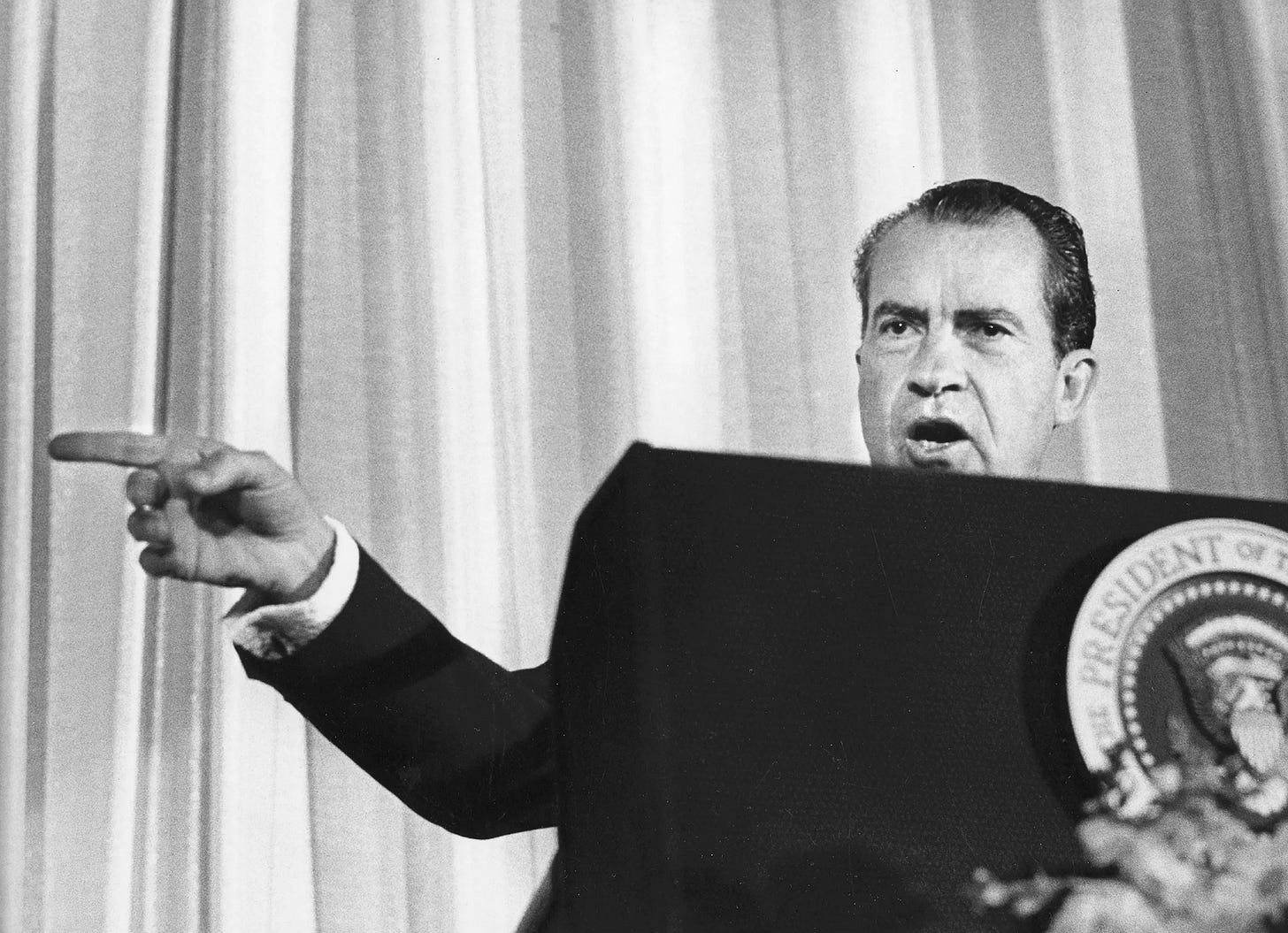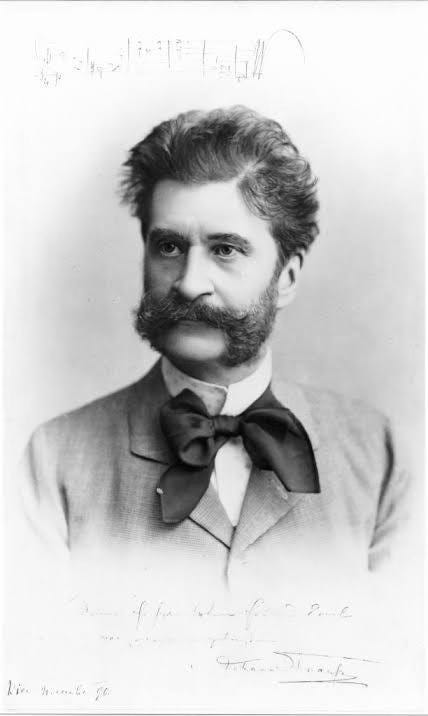This Day in Legal History: Nixon Vetoes War Powers Resolution
On October 24, 1973, President Richard Nixon vetoed the War Powers Resolution (H.J. Res. 542), a landmark piece of legislation passed by Congress to reassert its constitutional authority over decisions to deploy U.S. armed forces abroad. The resolution came in the wake of growing public and congressional frustration over the Vietnam War and secret military actions in Southeast Asia. The law required the President to notify Congress within 48 hours of deploying troops and prohibited armed forces from remaining in conflict for more than 60 days without congressional authorization. Nixon, in a written veto message, declared the measure “unconstitutional and dangerous,” arguing that it infringed on the President’s Article II powers as Commander-in-Chief.
Despite Nixon’s objections, Congress overrode the veto on November 7, 1973, with bipartisan support, thereby enacting the War Powers Resolution into law. This override marked a rare and forceful assertion of legislative authority over foreign military engagements. The resolution aimed to correct what many in Congress saw as decades of executive overreach in matters of war and peace. However, its constitutional legitimacy has remained contested. Presidents from both parties have often complied only in part—or ignored it altogether—asserting that the resolution unlawfully limits executive authority.
While the War Powers Resolution was intended to prevent unilateral military action, it has had limited practical effect in restraining presidents from engaging in hostilities without express congressional approval. Legal scholars continue to debate its enforceability and the constitutional balance it attempts to strike. The 1973 veto and subsequent override encapsulate enduring tensions between the executive and legislative branches over control of U.S. military power.
Two federal judges—Julien Neals of New Jersey and Henry Wingate of Mississippi—recently admitted that erroneous rulings issued from their chambers were the result of law clerks or interns improperly using AI tools. The judges revealed in letters to the Administrative Office of the U.S. Courts that the flawed opinions contained fictitious citations or parties due to unvetted generative AI research. Judge Neals said a law school intern used ChatGPT, which led to nonexistent case quotes in a June 30 order, violating his chambers’ unwritten policy against AI use. He has since formalized that policy. Judge Wingate reported that a law clerk used Perplexity AI to help draft a July 20 restraining order, which contained completely inaccurate case details. He acknowledged the draft “should have never been docketed” and is now requiring dual reviews of all drafts and hard-copy verification of cited cases.
Legal scholars were critical of the situation, arguing that the use of AI does not relieve judges of their duty to verify citations and legal reasoning. Professors Stephen Gillers and Bruce Green both questioned how such oversights could occur and whether this reflects a broader trend of judges signing off on unverified drafts. Senator Chuck Grassley, who initiated an inquiry into the incidents, urged the judiciary to develop robust AI policies to prevent similar breakdowns in judicial accuracy. Interim guidance from the Administrative Office of the U.S. Courts now cautions against using AI for core judicial tasks and emphasizes user accountability.
Judges Admit to Using AI After Made-Up Rulings Called Out (1)
Rep.-elect Adelita Grijalva (D-Ariz.) has filed a lawsuit seeking to compel the House of Representatives to officially swear her in, and the case has been assigned to Judge Trevor N. McFadden, a Trump-appointed federal judge in Washington, D.C. Grijalva, who won a special election on September 23 to succeed her late father, Raúl Grijalva, has not yet been seated, and Speaker Mike Johnson (R-La.) has delayed scheduling her swearing-in. Her formal entry into Congress would reduce the Republican majority and enable Democrats to trigger a vote on releasing Jeffrey Epstein-related documents.
Judge McFadden is known for conservative rulings, though his record includes some independent decisions, such as restoring the Associated Press’ White House access. Grijalva’s legal team is examining the implications of his assignment to the case.
Grijalva argues that the delay is not just procedural but prevents her from doing the basic work of a representative. Without a formal swearing-in, she lacks an office budget, staff, constituent services, and a working phone line. The number for her late father’s office still routes to outdated voicemails. In contrast, Speaker Johnson downplayed the significance of the delay, suggesting Grijalva can still serve constituents informally. The case, Ariz. v. House of Representatives, now centers not only on procedural norms but also on the balance of political power in a narrowly divided House.
Grijalva’s Lawsuit to Force House Swearing-In Draws Trump Judge
New York Attorney General Letitia James is expected to plead not guilty today in federal court to charges of bank fraud and making a false statement to a financial institution. The indictment accuses her of misrepresenting a 2020 Norfolk, Virginia property as a second home to secure a lower mortgage interest rate—saving nearly $19,000—when she allegedly used the home as a rental investment. James denies wrongdoing and plans to challenge the charges, calling them baseless.
The case marks a dramatic turn for James, a Democrat who last year won a $450 million civil fraud judgment against Donald Trump. Although the monetary penalty was overturned on appeal, the court upheld the underlying fraud finding. James is one of several public figures who have clashed with Trump and are now facing criminal charges under his administration, alongside former FBI Director James Comey and former National Security Adviser John Bolton.
Critics, including a third of Republicans according to a Reuters/Ipsos poll, believe Trump is weaponizing federal law enforcement to target perceived enemies. The lead prosecutor in the James case, U.S. Attorney Lindsey Halligan, was appointed by Trump after he replaced a prior prosecutor who raised concerns about the strength of the case. James’ team argues Halligan is unlawfully serving in the role and has already moved to dismiss the charges. The case will be heard by U.S. District Judge Jamar Walker, a Biden appointee.
This week’s closing theme is by Johann Strauss, Jr.
This week’s closing theme features Johann Strauss Jr. and a spirited dive into the Wiener Klänge im Walzertakt mit Johann Strauss – I (”Viennese Sounds in Waltz Time with Johann Strauss – I”). Known as the “Waltz King,” Strauss Jr. was born on October 25, 1825, in Vienna and became the most celebrated composer of light dance music in the 19th century. While his father, Johann Strauss Sr., founded the family’s musical dynasty, it was Strauss Jr. who elevated the Viennese waltz to international acclaim, transforming what had been a lively but modest ballroom dance into a glittering art form.
Strauss Jr. composed over 500 works, including waltzes, polkas, and operettas, many of which captured the charm and social energy of Habsburg Vienna. His most famous pieces—like The Blue Danube, Tales from the Vienna Woods, and Vienna Blood—remain fixtures in concert halls and New Year’s galas to this day. The selection in Wiener Klänge im Walzertakt offers a snapshot of this legacy, blending elegance, momentum, and melodic wit with unmistakable Viennese flair.
Beyond their musical appeal, these waltzes represent a cultural moment: a fading empire still wrapped in gilded pageantry, danced into memory by the music of Strauss. They also underscore Strauss Jr.’s gift for orchestration—light but never shallow, sentimental yet never saccharine. His music invites listeners not just to hear, but to move, swirl, and feel the rhythm of a society twirling on the edge of modernity.
As we close this week, let the shimmering 3/4 time of Johann Strauss Jr. remind us of both the power of beauty and the politics of public joy. In the same way his music bridged popular entertainment and sophisticated art, so too does this moment ask us to consider how culture can move between courts, crowds, and chambers alike.
Without further ado, Viennese Sounds in Waltz Time with Johann Strauss, the first movement – enjoy!














